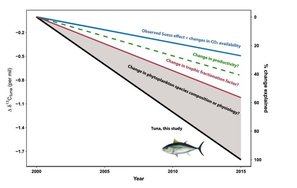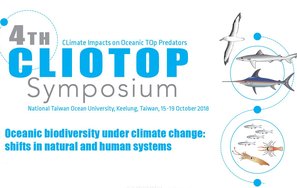
Patrick Lehodey and his team were awarded the Star of Europe Award for the MESOPP project
The 2019 Star of Europe Award was presented to Patrick Lehodey for the Mesopelagic Southern Ocean Prey and Predators (MESOPP) project in Paris in December. Patrick Lehodey is the leader of this collaborative Australian-European marine ecosystem project. He is also a co-founder and former chair of CLIOTOP . MESOPP involved a consortium of eight partners, including Collecte Localisation Satellite (CLS), the French Research Institute for Exploration of the Sea (IFREMER) and Université Pierre et Marie Curie (UPMC) from France, the Commonwealth Scientific Industrial Research Organisation (CSIRO), the Australian Anatartic Division (AAD) and the University of Tasmania from Australia, the British Antarctic Survey and the University of St. Andrews from the United Kingdom and the Institute of Marine Research (IMR) from Norway. The project has been developing standardised methods and datasets for assimilating acoustic biomass estimates of micronekton organisms in ocean ecosystem models. Star of Europe Award, created in 2013 by the Ministry of Higher Education and Research, recognises teams of researchers for their European commitment and their work in co-ordinating projects. Congratulations to Patrick and the project team on receiving this prestigious award!






